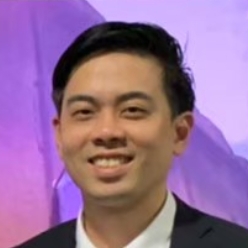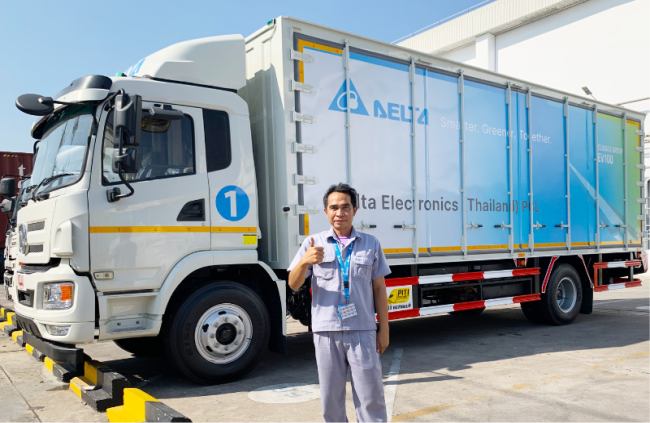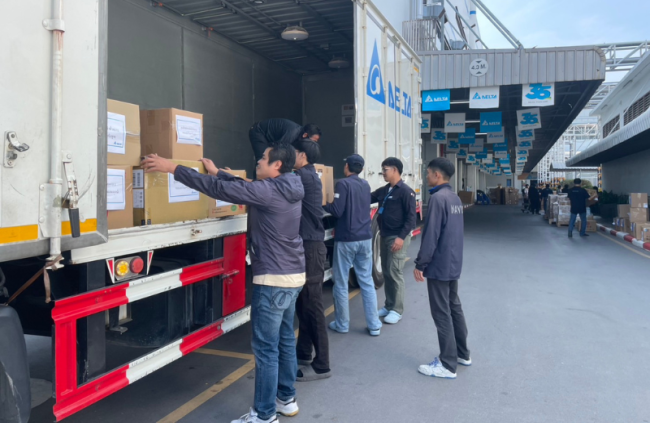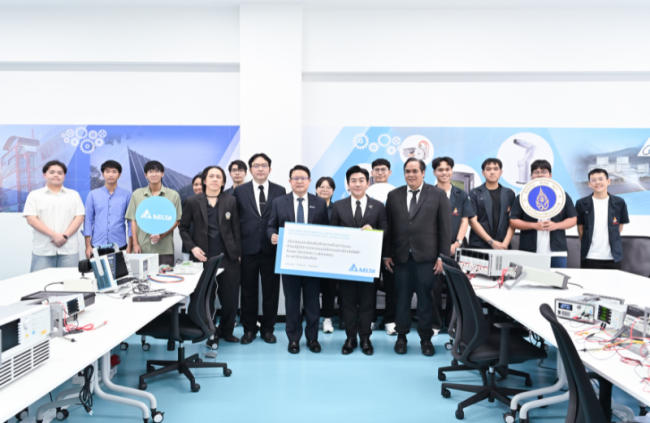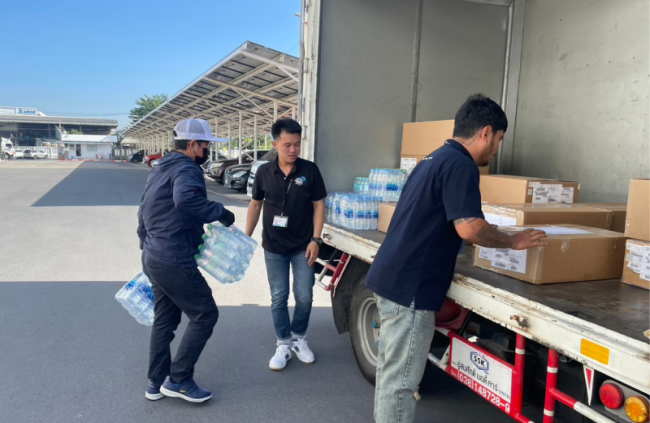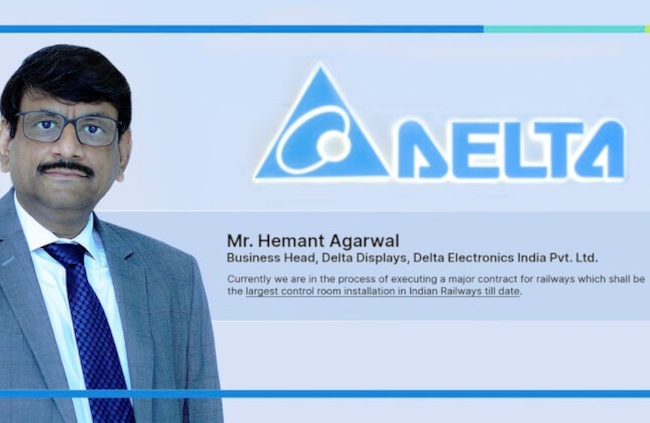Don’t Prove Yourself, Improve Yourself!: Delta Thailand CIO Shares How to Create Value and Lead for Success
By David Nakayama - Published September 21, 2022
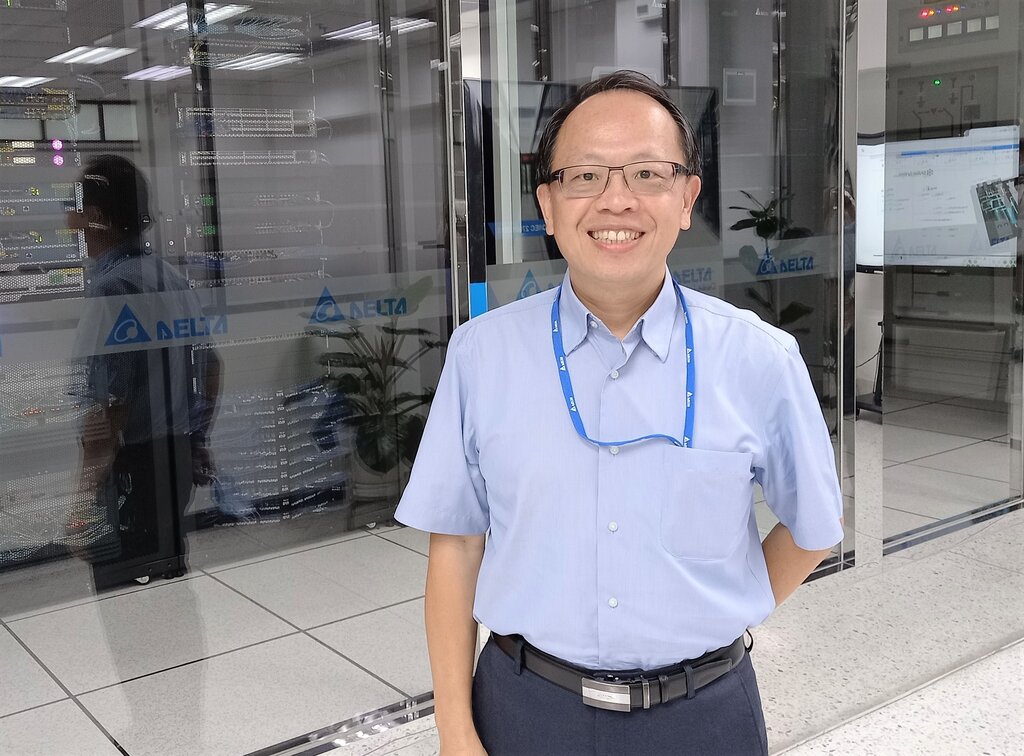
Interview with Mr. Jimmy Chen, Delta Thailand Chief Information Officer
Text, Photos and Translation by David Nakayama, DET Corp Comms
Samutprakarn, Thailand, August 10, 2022- As an innovation-driven organization, world-class information technology (IT) is core to our success at Delta Thailand. For the past decade, Jimmy Chen our Chief Information Officer (CIO) has labored behind the scenes to lead our tech-driven growth and develop a talented local IT team. This month, I was able to chat with one of our most proven domain experts and up-to-date C-suite leaders at the DET IT office in his native language Mandarin.
For over an hour, he shared stories and insights that revealed a relentless intellectual curiosity and an empathetic almost philosophical thought process hidden behind his impish grin. His career journey is marked by successive accomplishments and continuous evolution from an IT systems implementer and technologist to a people leader and business consultant blazing a trail for our digital transformation. He also shares his transparent and empowering approach to managing and growing talent that sets him apart as a rare leader at Delta.
Can you please share with us your background and how you came to your current role as Delta Thailand Chief Information Officer (CIO)?
I graduated from the National Taiwan University of Science with a degree in Information Technology (IT) Management. I began my career implementing systems for materials outsourcing management and production planning and doing Material Requirements Planning (MRP) and MFG Pro system implementation and programming analysis at two manufacturing companies. I also was the AIS-Unix Administrator doing network management and futures programming at a securities company.
In 1999, I joined Delta Taiwan and worked with Delta Thailand, India and Europe to implement SAP’s ERP (enterprise resource planning) Customer relationship management (CRM) software and help in production planning, Product Lifecycle Management (PLM) system implementation and web application development. In 2007, I became the Business IT head of the ESBG which was later split up into our current Telecom Power Systems (TPS) and Critical Infrastructure Systems (CIS) BGs. This experience gave me a firm understanding of Delta's business operations and our integration with the ERP and digital ecosystem.
I had worked with our previous DET CIO Saowanee before in Thailand and India and when she was retiring she suggested I take the opportunity for my future development. I interviewed with the DET President at the time Henry Hsieh and the former COO Stronger Wang and they decided to give me a chance as DET CIO. In 2011, I arrived to begin the handover period becoming DET CIO in 2012. Today I lead our team of 47 members.
We depend on Delta IT systems and services for our work. What are the top priorities for the DET IT team in terms of most critical support and highest value-add to our organization?
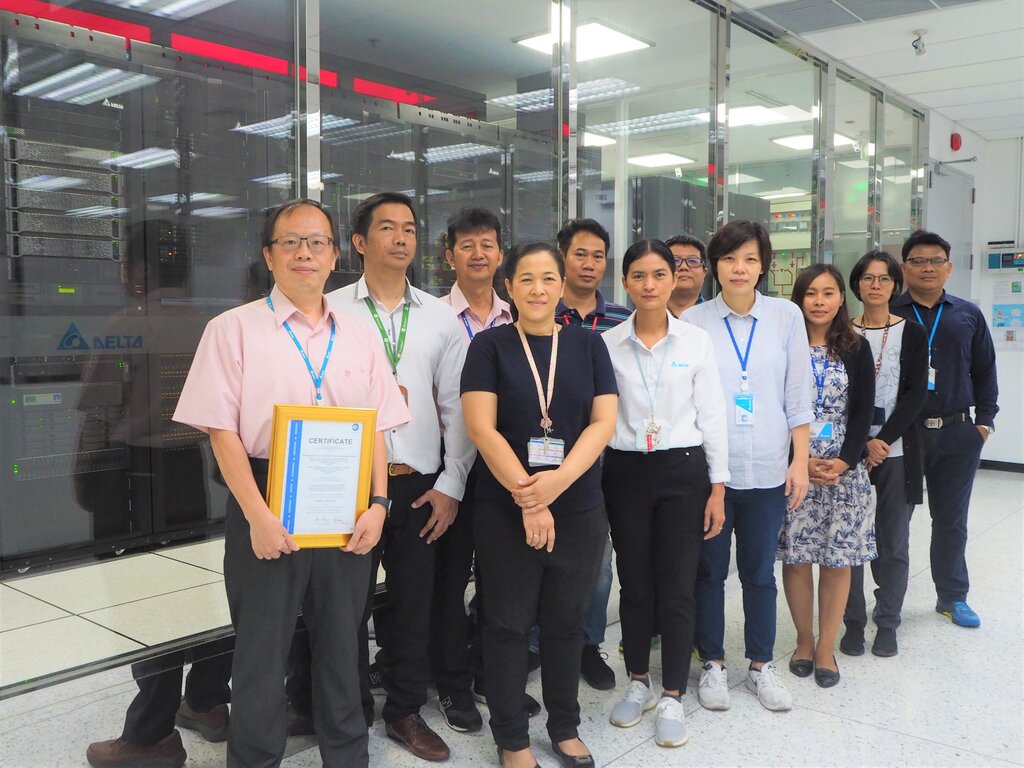
DET IT Department with the ISO27001-ISMS
In the past, IT focus was on technical support and system maintenance and we implemented many infrastructures to support business requirements such as our OA and Manufacturing execution system (MES) and SAP software. Now, our role has shifted to becoming business consultants and advisors to management. We need to come up with our own solutions to match business issues of today and the future.
Our first priority is cyber security to ensure that our business is conducted within secure parameters. Second, IT must lead Delta to leverage digital tools to support business needs and growth. We always learn the business needs from daily operations and the market to prepare and support everyone ahead of time. For example, during the COVID-19 pandemic, our colleagues had to work from home (WFH) and needed an easy and seamless connection to our corporate systems via VPN.
In the past 1-2 years, we see digital transformation as a top value add. All departments need to streamline processes, think about the future direction and move towards business-driven hyper-automation to increase production efficiency and reduce costs. We also must help our management to change and use the tools that we have available like CRM for sales and marketing.
At Delta Thailand IT, we have our own data center built with our original hardware and infrastructure. Can you share with us the top benefits of having our data center in-house?
Having our own data center can give us higher visibility, data privacy and security for peace of mind. This is doubly important when we consider the new compliance laws that we must comply with like Thailand’s PDPA and the EU GDPR.
Other benefits of using our own data center are:
- Full customization for our exact needs for best performance
- Total control and oversight
- No need to share resources
The disadvantage of a data center is cost as it’s a cost-fixed asset whereas the cloud is just an expense with a pay-as-you-go usage model. However, we still want to keep our sensitive information in our own data center and not in the cloud. Right now our data center is at 100% full capacity and stores all our office backup data for the OA system, manufacturing system and ERP systems.
We are also considering a hybrid cloud for enhanced scalability whether we're dealing with workloads or datasets. Cloud gives us much more computing power for things like our RD simulations during product development. We also can use the cloud for information exchange of non-classified information with 3rd parties.
How does Delta IT help the company respond to IT emergencies and manage IT risks for issues like security, critical system issues and overload from increased data and traffic during COVID-19?
DET IT always reviews and plans upgrades every year to prepare for any eventualities, especially for our infrastructure and data protection. During the pandemic, IT has been in discussions with our internet service provider (ISP) to increase bandwidth to 1G-2G and monitoring mechanisms ahead of time.
In addition, IT also has dedicated staff to monitor all traffic and VPN connections in the backend during WFH to ensure that all WFH employees are working smoothly and our data is secure. Work with the service providers to secure high-speed bandwidth.
How is DET IT helping to educate everyone at Delta about IT security, and how can we all help support safer IT usage and best practices?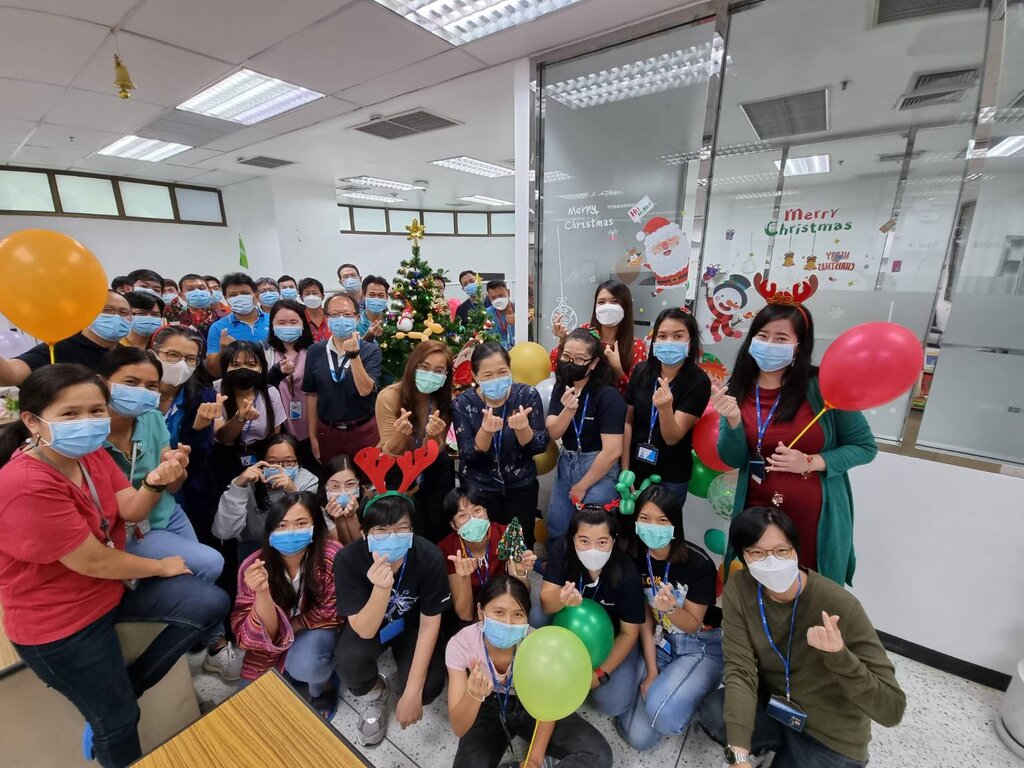 We conduct annual cybersecurity training and deploy tools on server/client to detect any suspicious events. We also test employees on information security and perform system vulnerability scans/trace event logs and updates security patches for all servers and clients.
We conduct annual cybersecurity training and deploy tools on server/client to detect any suspicious events. We also test employees on information security and perform system vulnerability scans/trace event logs and updates security patches for all servers and clients.
Of course, we must always remind everyone to keep following IT safety guidelines such as:
- Think twice before acting on or sending an email
- Check domain names carefully
- Always verify with colleagues and supervisor
I want to stress that IT security is not just the responsibility of IT. We all need to work together at Delta to minimize cybersecurity risk.
What are some ways you have seen the CIO’s role evolve during your career, and what new technologies do you see as game-changers that will revolutionize our industry?
In the pre-internet age before 2000, IT was responsible for delivering new IT systems on time and within budget. Projects were on request and limited in scale. From 2000-2010 the CIO’s responsibilities expanded but IT was still seen as a cost center rather than an investment for business success.
From 2010 to the present, we are in a digital revolution driven by mobile and cloud innovation. Today, the CIO's responsibility includes the Internet (Industry) of Things (IoT/IIoT), 5G networks and a new IT architecture called edge computing.
Therefore, an effective CIO MUST build trusted relationships with top management and become an important part of the business. A CIO is a consultant to the business, not just an IT technologist. Our main goal is how to protect the company’s interests.
You are a key member of Delta Thailand’s C-suite and a regional leader. What do you see as the essential qualities a manager needs and necessary actions to effectively implement a high-level strategy and impact operations?
A good manager must keep learning and teaching. Everyone is different, so our goal should be to continually develop our communication skills, adjust how we motivate people, and improve working relationships inside and outside of our teams.
Successful managers need to invest time in the future development of each member of the team so that team members feel they are performing well and progressing in their careers. Effective performance appraisals ensure the continued development of individuals within a team and in line with their career aspirations.
Personally, my top tips are:
- Take time to listen and have clear communication
- Make transparency a priority
- Give clear directions and make decisions that empower your team
- Earn mutual trust
- Protect your team and take responsibility for actions you approved
What do you enjoy besides work? Do you have any tips for enjoying life while working abroad?
 I enjoy cooking at home, eating and meeting new friends. I’m most confident in my Taiwanese beef noodles and pan-fried beef steak dishes. I like to take my family on trips all over Thailand.
I enjoy cooking at home, eating and meeting new friends. I’m most confident in my Taiwanese beef noodles and pan-fried beef steak dishes. I like to take my family on trips all over Thailand.
My favorite vacation spot is the island of Kho Khoot in Trat Province which is around 350km from Bangkok and near to the island Kho Chang. I’ve driven with my family to Phuket in the south and Chiang Mai in the north of Thailand.
When living abroad I think it’s important to open your mind, love your work, be mindful, de-stress, appreciate different cultures and find new hobbies.
How would you describe your management style, and what are the ways you facilitate the success of your people?
For me, the best approach to management is to switch back and forth between facilitator and hands-on styles. I like to encourage the team to connect and work well together as much as possible. For more immediate crises, I choose to reassign tasks or pick up the slack myself.
I believe there are four key things we can do to help our team succeed:
- Communicate strategy and direction
- Help everyone understand new opportunities within the organization
- Proactively manage opportunities for high-potential employees
- Clearly express expectations to each individual at different levels
Finally, is there anything you would like to share with your Delta colleagues around the world?
 We must understand how new technologies can be used to assist our work and our daily lives. With the continuous advancement of technology, repetitive tasks are gradually replaced by machines so we cannot stay in our comfort zone and we must constantly enrich ourselves.
We must understand how new technologies can be used to assist our work and our daily lives. With the continuous advancement of technology, repetitive tasks are gradually replaced by machines so we cannot stay in our comfort zone and we must constantly enrich ourselves.
I want to take this chance to share a famous quote from one of America’s top photographers Bob Gilka. He told his new photographer Dewitt Jones, "Don't Prove Yourself, Improve Yourself!” As humans, I believe we all can move past our petty urge to impress our boss, colleagues, family or neighbors and just focus on growing into better people.
